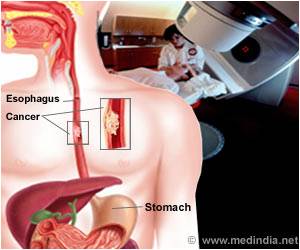The predictive model could reduce overtreatment of women with breast pre-cancers called ductal carcinoma in situ.

‘The gene classifier helps distinguish whether the early pre-cancers in the breast will develop into invasive cancers or remain stable.’





“There has been a long-standing debate over whether DCIS is cancer or a high-risk condition,” Hwang said. “In the absence of a way to make that determination, we currently treat everyone with surgery, radiation, or both. What is Ductal Carcinoma In Situ (DCIS)
“DCIS is diagnosed in more than 50,000 women a year, and about a third of those women have a mastectomy, so we are increasingly concerned that we might be overtreating many women,” Hwang said. “We need to understand the biology of DCIS better, and that’s what our research has been designed to do.”Hwang, West and colleagues analyzed 774 DCIS samples from 542 patients who were a median of 7.4 years post-treatment. They identified 812 genes associated with recurrence within five years from treatment.
The gene classifier was able to predict both recurrence and invasive progression of cancer, with progression appearing to be dependent on a process that requires interactions between invasive DCIS cells and the unique features of the tumor environment.
Hwang said most of the DCIS cancers analyzed in the study were identified to be at low risk for cancer progression or recurrence – a factor that underscores the need to have an accurate predictive model that can be used during clinical visits to guide care.
Advertisement
Source-Eurekalert















